Understanding suffixes Building Vocabulary Worksheets for Ages 6-8
6 filtered results
-
From - To
Boost your child's vocabulary with our "Understanding Suffixes" worksheets designed for ages 6-8! These engaging and interactive resources help young learners explore the world of suffixes—endings that modify the meaning of root words. By mastering suffixes, children enhance their reading comprehension and expand their language skills. Our worksheets feature fun activities that make learning enjoyable, such as fill-in-the-blanks, matching exercises, and word creation challenges. Ideal for use at home or in the classroom, these resources ensure a solid foundation for linguistic growth. Join us in making vocabulary building exciting and effective for your little one today!
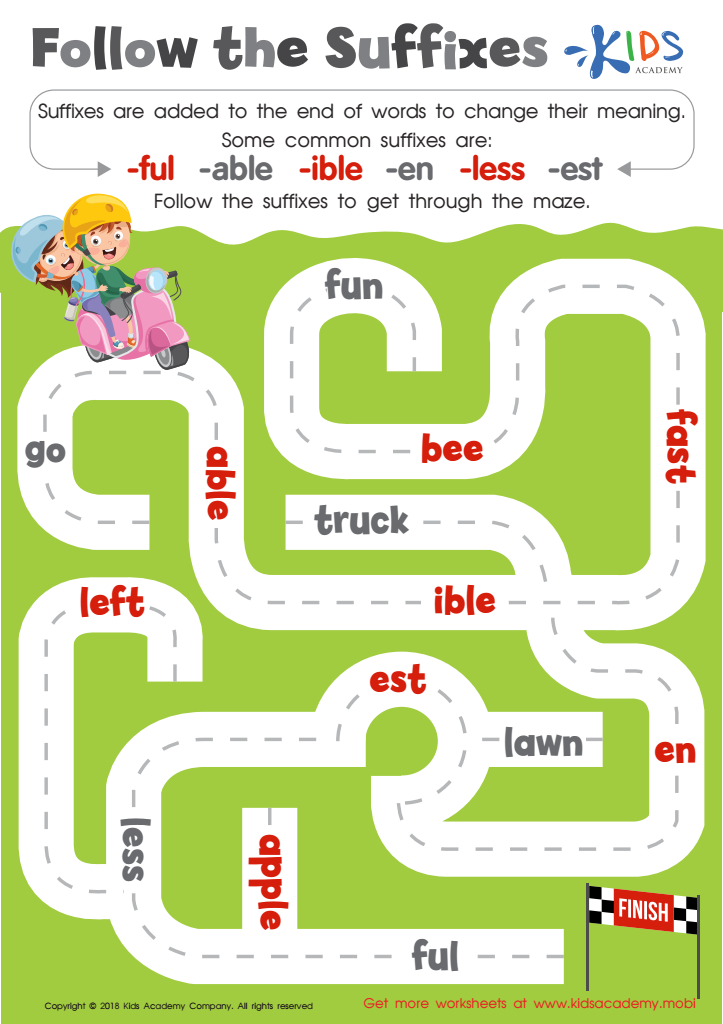

Reading: Follow the Suffixes Worksheet
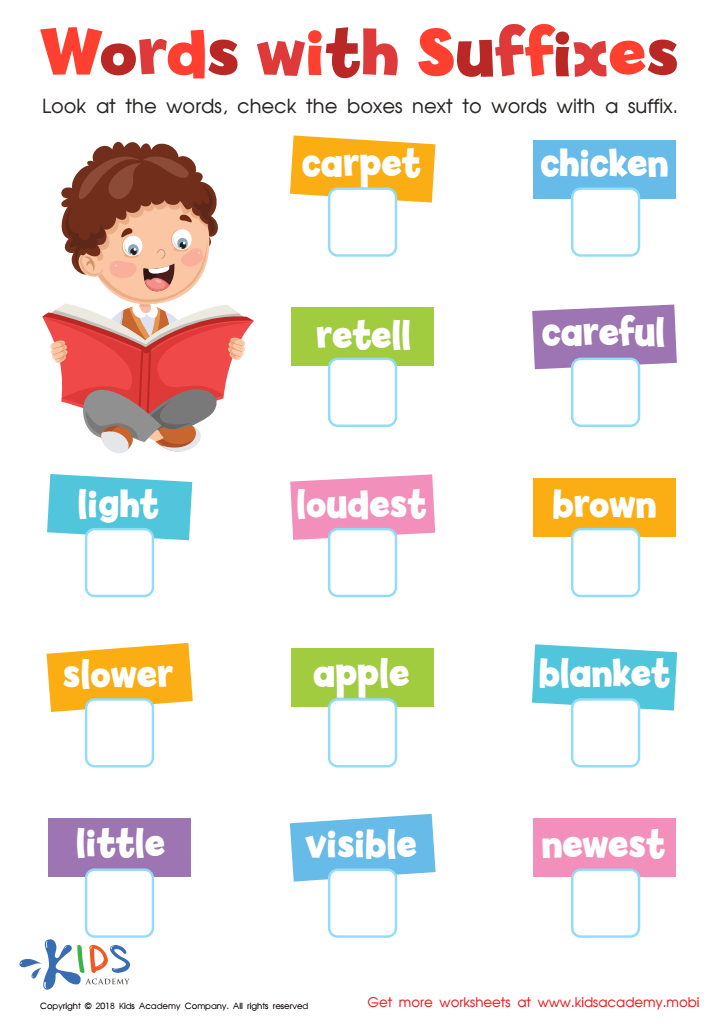

Reading: Words With Suffixes Worksheet
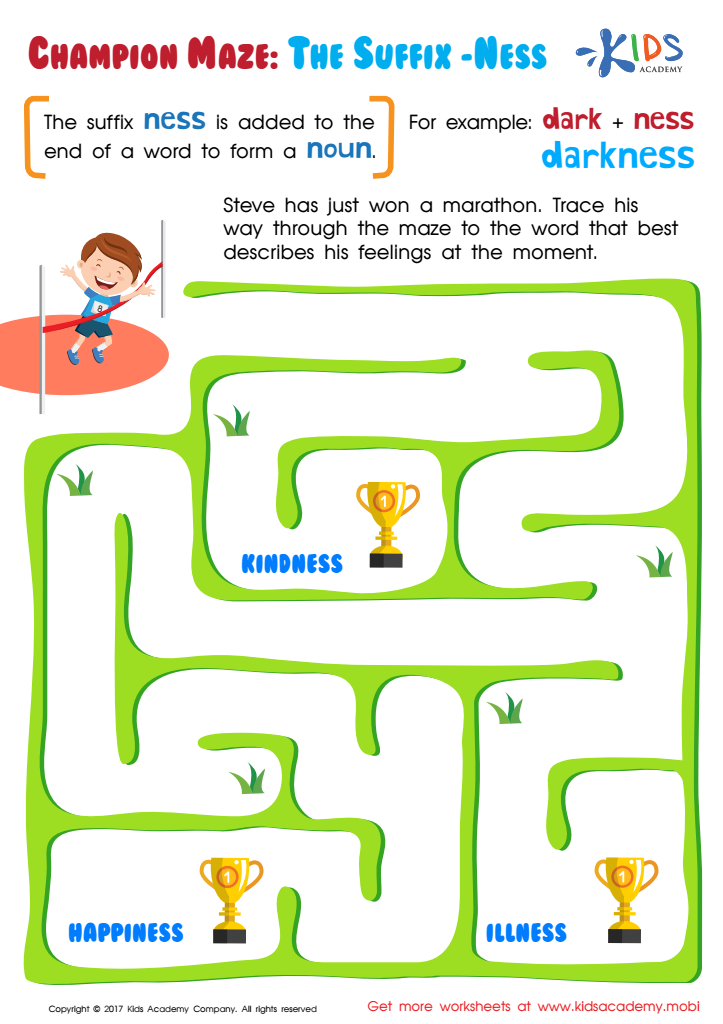

Suffix Ness Worksheet
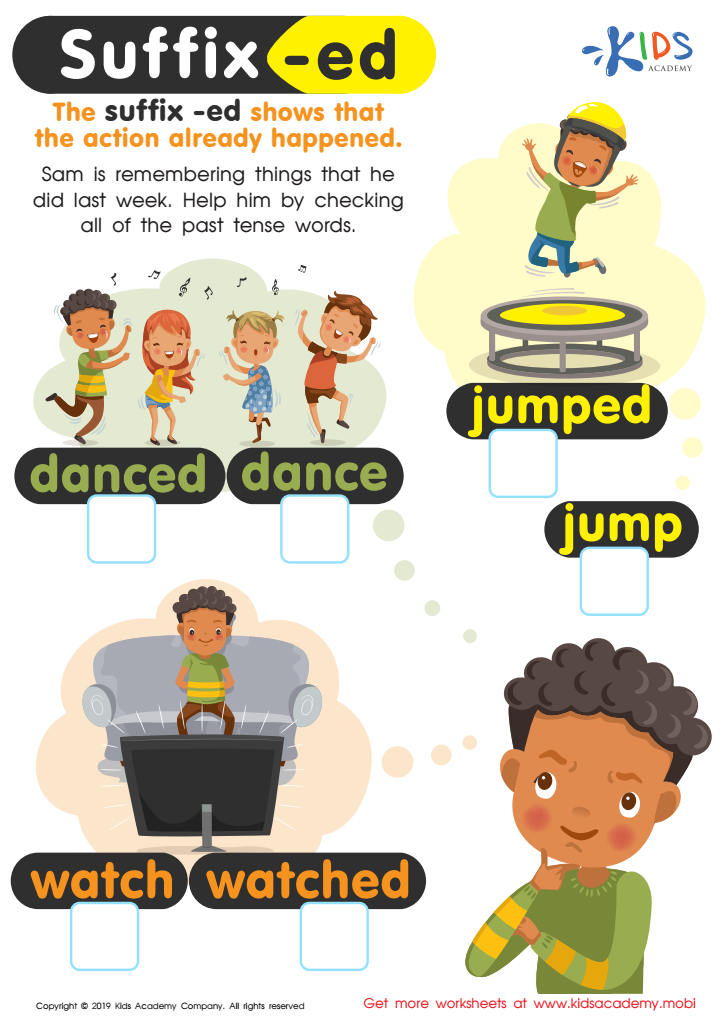

Suffix-ed Worksheet
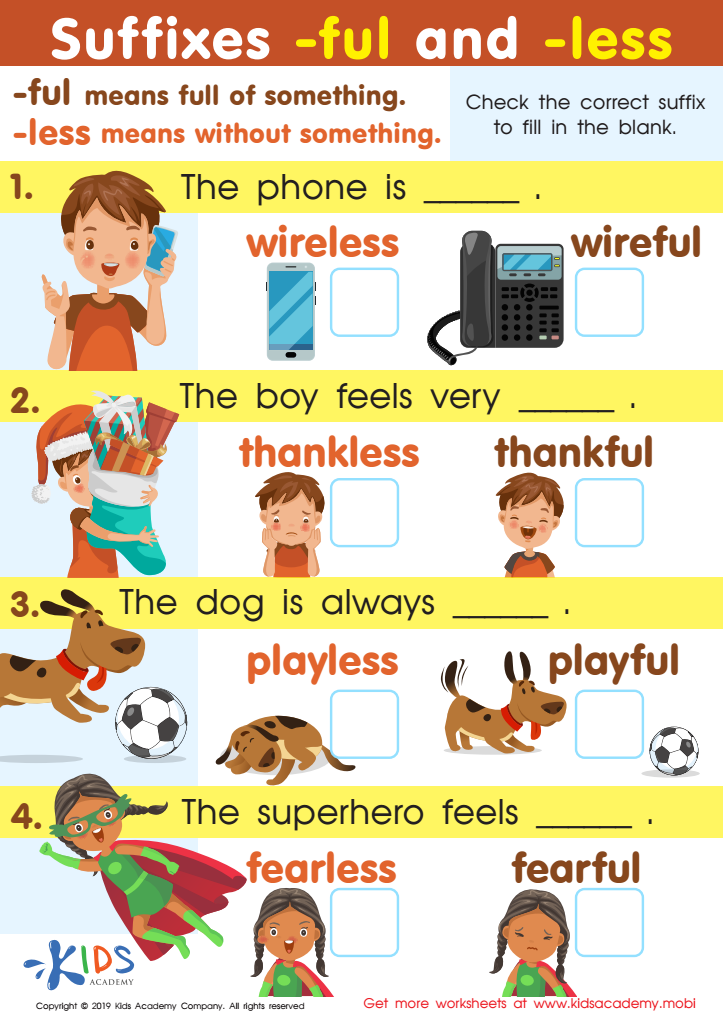

Suffixes –ful and –less Worksheet
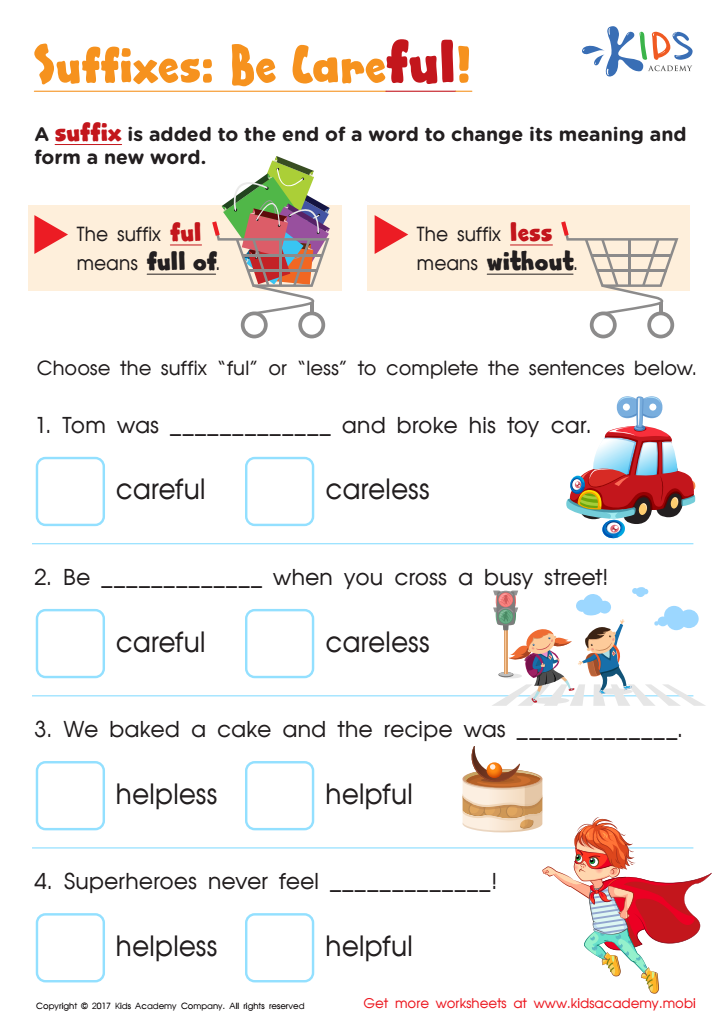

Suffixes Ful and Less Worksheet
Understanding suffixes is crucial for children aged 6 to 8 as it directly impacts their vocabulary development and literacy skills. Suffixes are letter combinations added to the end of words that change their meaning or grammatical function. When children grasp how suffixes work, they can decipher unfamiliar words and expand their vocabulary more efficiently. For example, knowing that adding "-ed" indicates a past action (like "play" becoming "played") helps children understand and read more complex texts.
Parents and teachers play a vital role in guiding this learning process. By emphasizing suffixes, they can foster a deeper comprehension of language, which is foundational for effective communication and creativity in writing. Furthermore, building vocabulary through suffixes enhances spelling skills; it allows children to make educated guesses about the meaning of new words, promoting independent learning.
Additionally, a strong vocabulary correlates with academic success. Children with a rich vocabulary tend to excel in reading comprehension and performance across subjects. Thus, by focusing on suffixes, parents and teachers empower children not only to become better readers and writers but also to gain confidence in their learning journey. This investment in vocabulary sets the stage for lifelong literacy skills.
 Assign to My Students
Assign to My Students






























